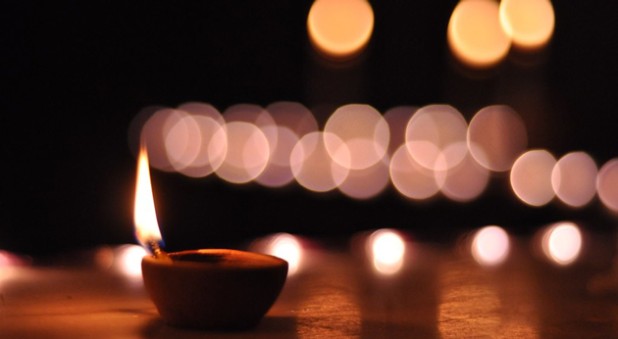A rich tapestry of salty and spicy pakoras, super sweet milk-based desserts, the smell of incense and fried spices so powerful it sends your olfactory organs into overdrive, colours so vivacious that they cause you to rub your eyes in bewilderment, prayers and chanting in languages unknown, and the playful laughter of children to grandparents – this is my experience of Diwali celebrations in Sydney.
When I think of Diwali, I am reminded to pray for South Asians, and for Hindus more specifically, to know Satya (the One who is Truth).
Globally, Hindus are the second largest, least-reached religious group after Muslims, and this worldwide trend is at least anecdotally reflected in Sydney and Australia. Not only are there significant numbers of South Asians who do not yet follow Jesus, so many do not even know of Jesus. They also do not know any Christian person who has shared about their life and experience of living as a true follower of Jesus.
In addition, the number of South Asians – and therefore Hindus – on our doorstep is rising, and will continue to rise as a result of economic and trade agreements. Given the statistics at our fingertips, and given that as followers of Jesus we ought to have the same heart for the lost as he did, how could South Asians around the world not be on our minds?
So, why does this festival remind me to pray? It is an example of a celebration empty of the truth. Diwali is celebrated around the world by Hindus, Sikhs, Jains and some Buddhists. Its cultural appeal is also gaining popularity.
The significance of Diwali varies in explanation from place to place. The word itself comes from the Sanskrit deepavali, meaning a row (avali) of clay lamps (deepa). It is a symbol of the inner light that protects from spiritual darkness, or knowledge over ignorance, or good over evil.
Some say its foundation comes from the triumphal return of Rama (an avatar of the Hindu god Vishnu) after rescuing his beloved Sita. To illuminate the path taken to come home, clay lamps are lit to such an extent that the world is bathed in light.
Others, though, celebrate Diwali as a dedication to the goddess Lakshmi – one bringing wealth, blessing and prosperity. As a result, this festival is celebrated by worship meetings (puja) where prayers are made for health and happiness. Windows are often left open throughout the festival to allow Lakshmi to come into homes and bless households. It is also believed to be an auspicious time to purchase gold and precious stones.
...given that as followers of Jesus we ought to have the same heart for the lost as he did, how could South Asians around the world not be on our minds?
Whatever the explanation you may hear as you speak to a South Asian friend about why they celebrate Diwali, the reality is that such a celebration, as unique and beautiful as it may appear, is a veil hiding the truth. There is no blessing to be had by praying to Lakshmi, and there is no victory of light over darkness to be found in the triumphal return of Rama.
Our South Asian friends who are not followers of Jesus are in darkness. They suppress the clearly understandable and available truth about the living God, and so deserve judgment and lack hope. Tragically, they are missing out on a genuine relationship with the One who is life, light, grace, and truth! These people, all around the world, and all around us in Sydney, do not have satya (the truth).
While followers of Jesus at an individual and institutional level need to give serious headspace to evangelism and discipleship among Hindus, there is also surely a biblical imperative to pray, and churches in Sydney are no exception! We ought to pray fervently for:
- those who do not know the truth, that they may find it in the gospel. So many Hindus are genuinely seeking a life of knowledge and inner peace, but are both blinded by the lies of a spiritually impotent way of life and are suppressing the truth by their wickedness;
- those who face significant spiritual attack due to malevolent Hindu spirits and deities, and physical and mental torment – especially due to the oppressive practices associated with Hindu concepts like karma;
- the Lord of the harvest to raise up more and more workers for the harvest field, including brothers and sisters from South Asia, who can proclaim the truth of Jesus in Sydney and all across the globe.
Won’t you join us, from today, in 15 days of prayer for the Hindu world?
Please get our prayer guide at hinduprayerguide.weebly.com and pray with us.
Pray as individuals and households, in growth groups and as church families, that Hindus across Sydney and the globe might know the love, comfort and security of a genuine relationship with our Lord Jesus Christ.
Pray because it is the very lifeblood of any movement of evangelism and discipleship. For, truly, ‘Unless the Lord builds the house, the builders labour in vain” (Psalm 127:1).
The Rev Ben George is of South Indian descent and is an assistant minister at Auburn and Newington Anglican Churches.
Feature photo: Aditya Sahay
























